






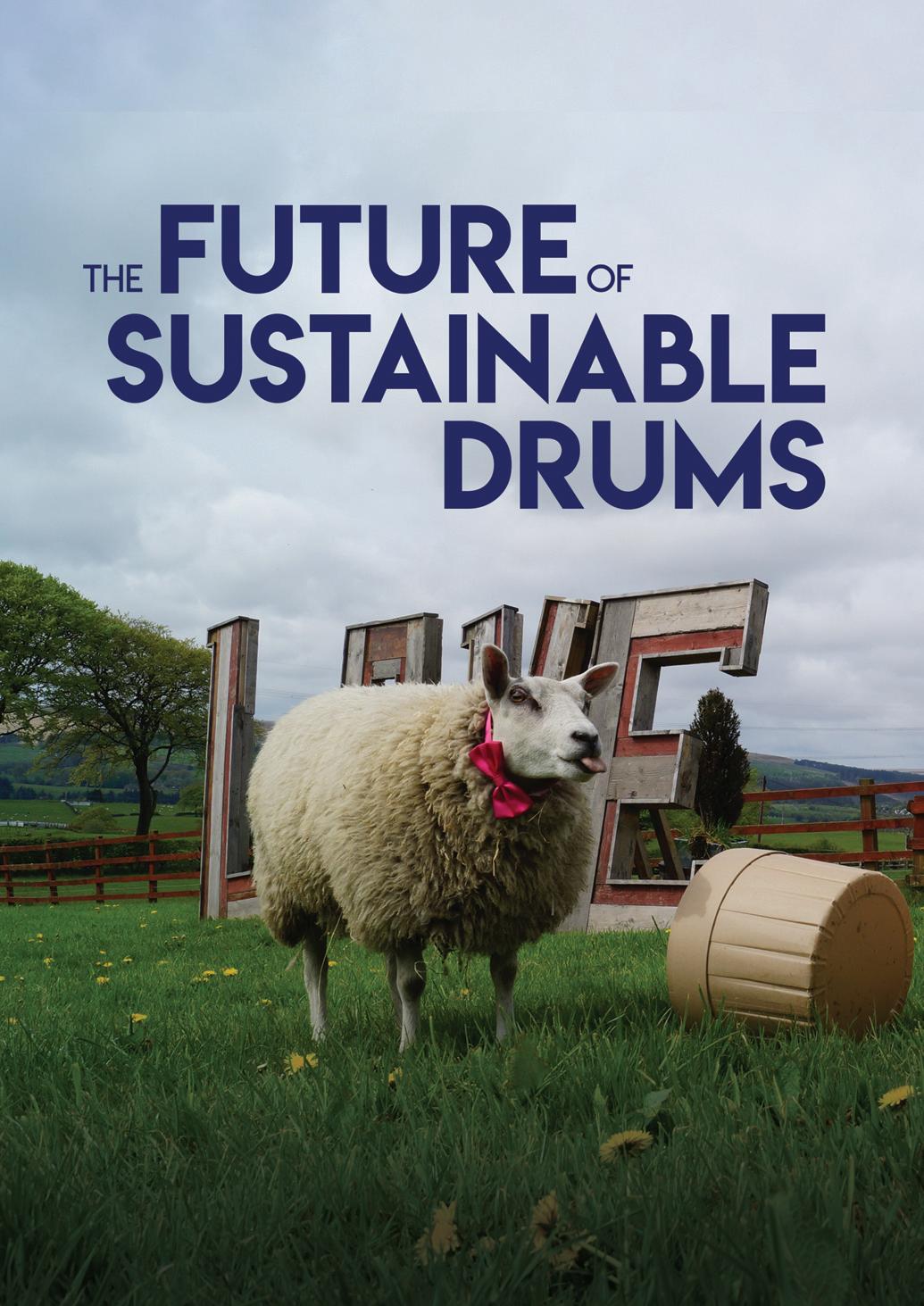
Fibrestar Drums is the largest supplier of fibre drums in the UK and delivers its innovative, high-quality, industrial packaging solutions across the world. For the last 90 years, the company has produced economical, high-quality, versatile packaging drums in various forms. Product Manager Giulia Bonito explained to Hannah Barnett how they do what they do so successfully.
Innovative, customisable and environmentally friendly, Fibrestar’s drums are made from natural, renewable paper and board that is 100% recyclable and 100% biodegradable. The company uses 1000 tonnes of paper per year, taken from sustainable, purpose-grown forests; so for every tree used, another three are planted. If stored and handled correctly the drums can be re-used multiple times. Drums that reach the end of their life cycle can be easily reconditioned or recycled back into paper production, used as fuel or as compost material. As Product Manager
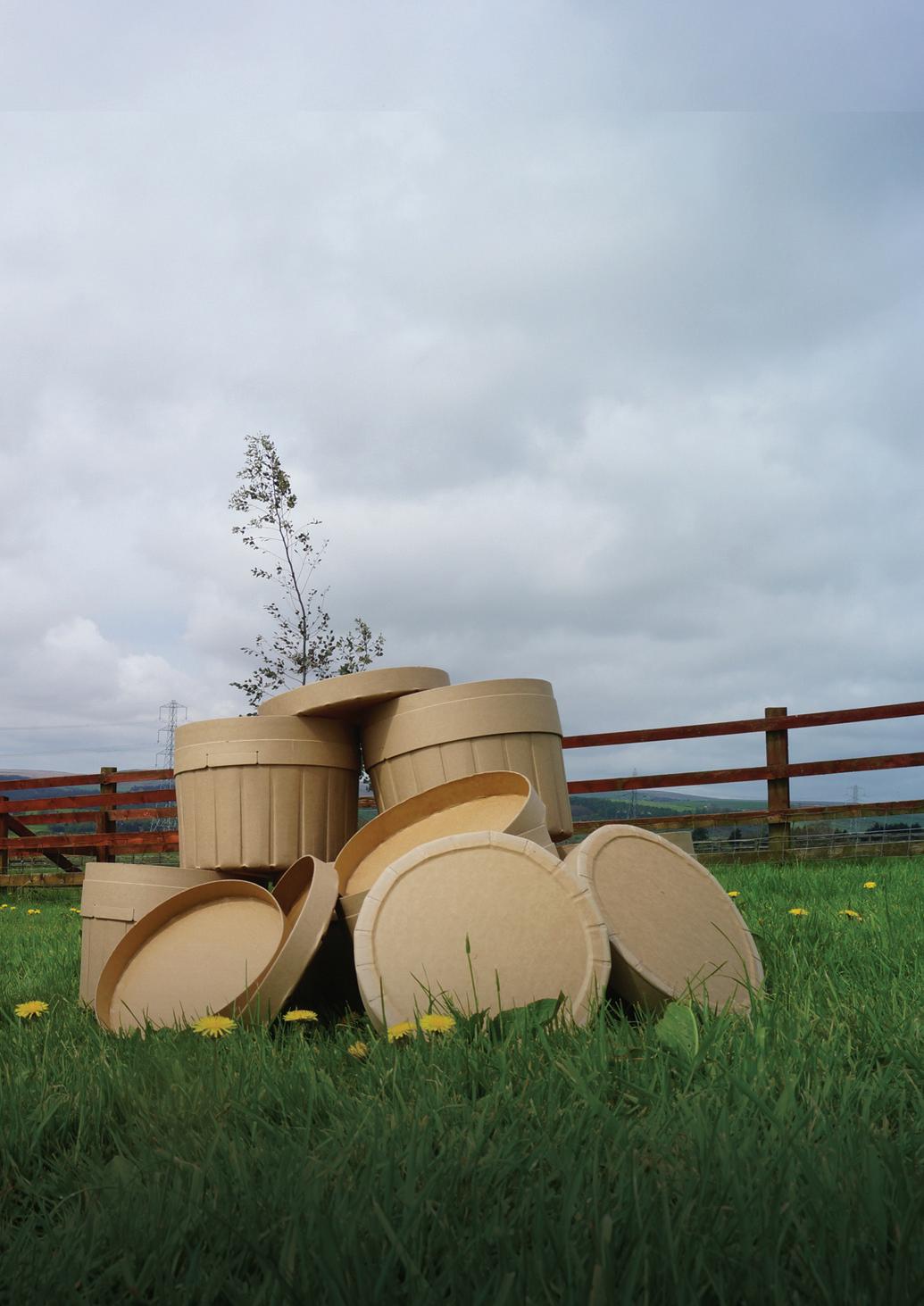
Giulia Bonito explained, the company is in demand across multiple sectors, and well equipped to serve them.
“The main markets we sell to are chemical and pharmaceutical, as well as food ingredients and welding wire,” she said. “We have an annual turnover of around £8 million. Our machines can produce 800 drums per hour. We make six different specs at capacities between ten to 250 litres. Drums can be up to a metre tall. All specifications are bespoke. It depends on the product, the viscosity, bulk density and storage conditions. We tailor products to meet the customer’s needs.”
Fibrestar Drums began life in 1932 as the ‘3 Ply Barrel Co’. Originally located in Trafford Park, Manchester, the company specialised in making plywood kegs, the 1930s equivalent of the state-of-the-art drums it manufactures today.

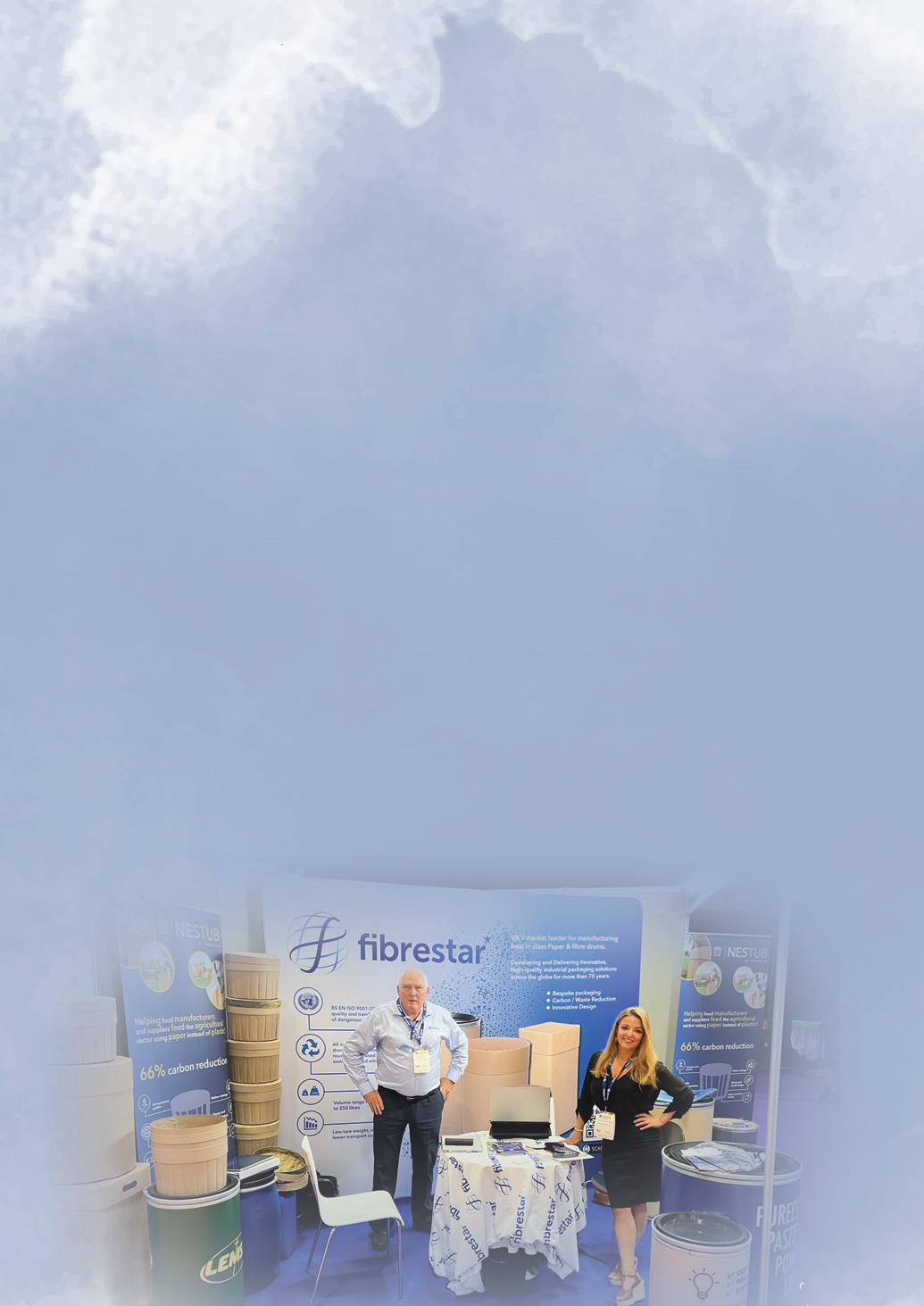
A key moment in Fibrestar’s later history was its move to Hazel Grove in Stockport in 2013. “It took about a year’s worth of planning to orchestrate the move,” said Ms Bonito, “but despite all the difficulties, we did not fail any customers and we did not lose any employees. Everyone decided to come with us, and we are proud of that.”
The specially designed production site allows the company to provide the very best in up-to-date packaging products and services. Stretching across 10,100 square-metres, the facility is divided into 50% production and 50% storage and is serviced by 60 employees.
The other reason the move marked a significant milestone is that it coincided with a shift in ethos that has gone on to define Fibrestar for the last decade.
“After we moved to our new premises, we put a lot of effort into the development of new paper-based products,” Ms Bonito explained. “Before the move, a lot of our production was of plastic drums. By 2013, things were starting to change in the world; there was more awareness about plastic pollution and climate change. It was then we realised that, for us, the future was fibre drums. So, we decided to put all our efforts into developing new specifications to build our range. Since then, we've been promoting fibre as a sustainable material to be used as an alternative to plastic.”
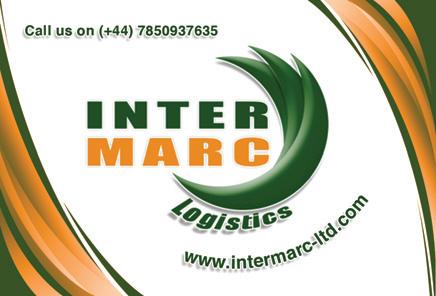
The Hazel Grove headquarters and sustainable ethos provided ideal conditions for the development of the company’s newest and most innovative product, Nestub. It is a fully biodegradable, durable and stackable paper-based tub made from recycled and virgin kraft paper, designed to compete and eventually replace its plastic counterpart. Nestub creates 66% less CO2 in its production than equivalent plastic pails and can withstand 60 kilos in weight. The product was developed by first understanding the weaknesses of its competition.

The Fibrestar team reverse-engineered the process, highlighting and addressing the weaknesses individually.
“For many years, the agriculture sector has been using plastic tubs,” Ms Bonito explained. “And a couple of years ago, we got an enquiry from one of the biggest manufacturers of animal feed in the UK. They told us that they were looking for an alternative to plastic tubs because the disposal of plastic is an issue for farmers. A recent UN report stated most plastics in fields are burned, buried or lost after use. Speaking with the farmers in the community, we were told that it is possible for animals to suffer injury from broken plastic shards whilst feeding. So, we agreed that we needed something different.”
‘Something different’ is what Fibrestar exists to provide, and the company seized the chance to create something totally new. “We had some options to offer them back then, but they didn't really tick all the boxes,” recalled Ms Bonito. “All the fibre drums were parallel sided, but they needed something conical so that they could minimise transport costs and warehousing space. With the help of The Growth Hub, we managed to come up with a process that allowed us to replicate the conical shape of the buckets, making our containers nestable and stackable.”

Nestub shines a light on the benefits of paper as a renewable and sustainable raw material with a low carbon footprint. And, as Ms Bonito revealed, the development of the protype unveiled some exciting findings: “After we sent out the first few samples, we realised we had basically created a whole new concept for agriculture, because the animals were not only eating the feed inside the tub, but also eating the tub. “The benefit of using virgin kraft paper is that it is durable but at the same time, it is biodegradable, and it can safely be consumed by the animals. When the tub starts to biodegrade and becomes weakened around the sides, the animals eat it. It's safe because the tub is cellulose based, it’s fibre, and you have no more waste in the fields as the packaging gets eaten too.”

The company has put itself behind this product, set to launch in 2023. “All our resources have been invested in new machinery for the product development of Nestub, to meet the leanest price currently offered by the plastic guys,” said Ms Bonito.
Alongside this, the rest of the Fibrestar range remains innovative and significant, too. “We're continuing to invest in new tooling to improve the performance of our existing kit,” said Ms Bonito, “to get more efficiency out of what we've got. And in new materials.
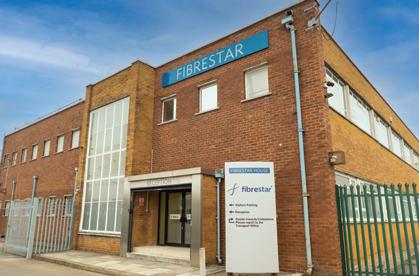
As Ms Bonito acknowledged, a higher price point is often one of the issues cited by clients when it comes to switching to sustainable products. “Though we do have a lot of customers who value sustainability,” she said. “Ultimately, we're running out of time and resources, so I think soon everyone will have to look for an alternative.

“There's a motto that we love from one of our suppliers: ‘plastic, when necessary, paper when possible’. There are limitations to what paper can do versus plastic. But paper is a resilient and sustainable material, and one of the easiest and most frequently recycled raw materials in the world.
“At this moment, we are at a crossroads,” concluded Ms Bonito, “where we are faced with environmental collapse or a sustainable future. A recent article shared by The Guardian showed how our soils contain more microplastics than the oceans. Change at this point is not only necessary, but it is our only hope. ’’

